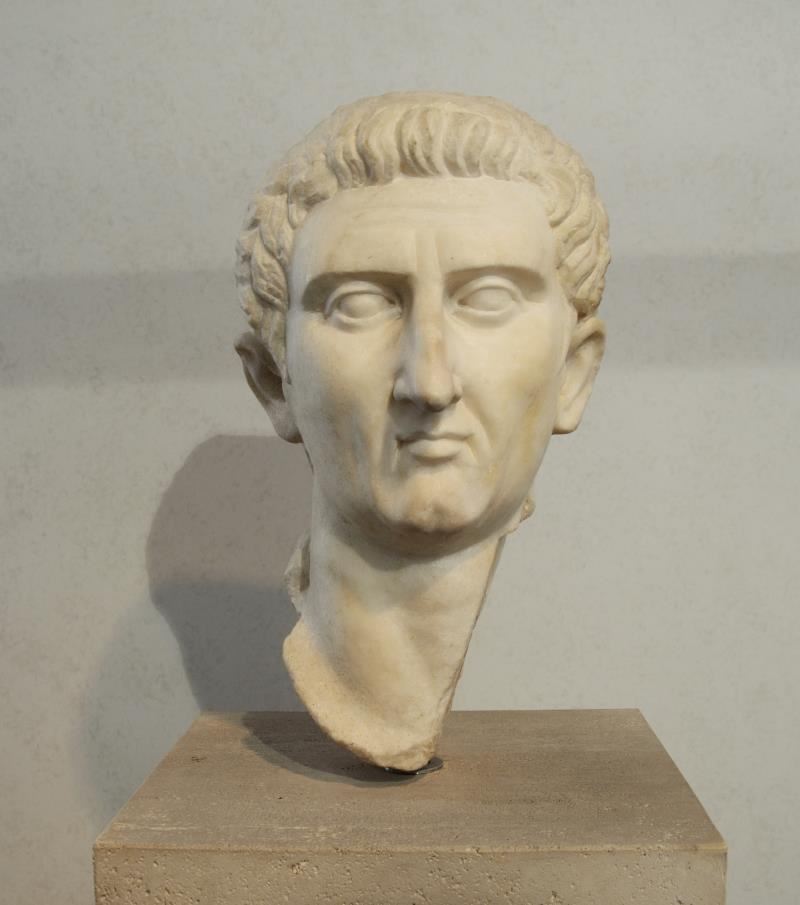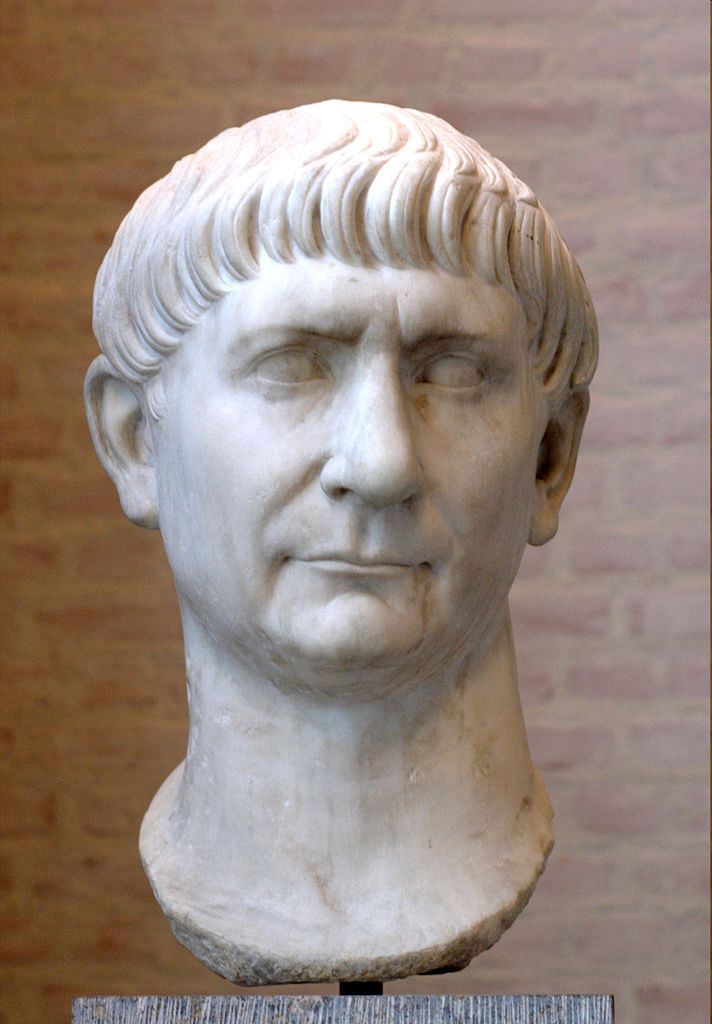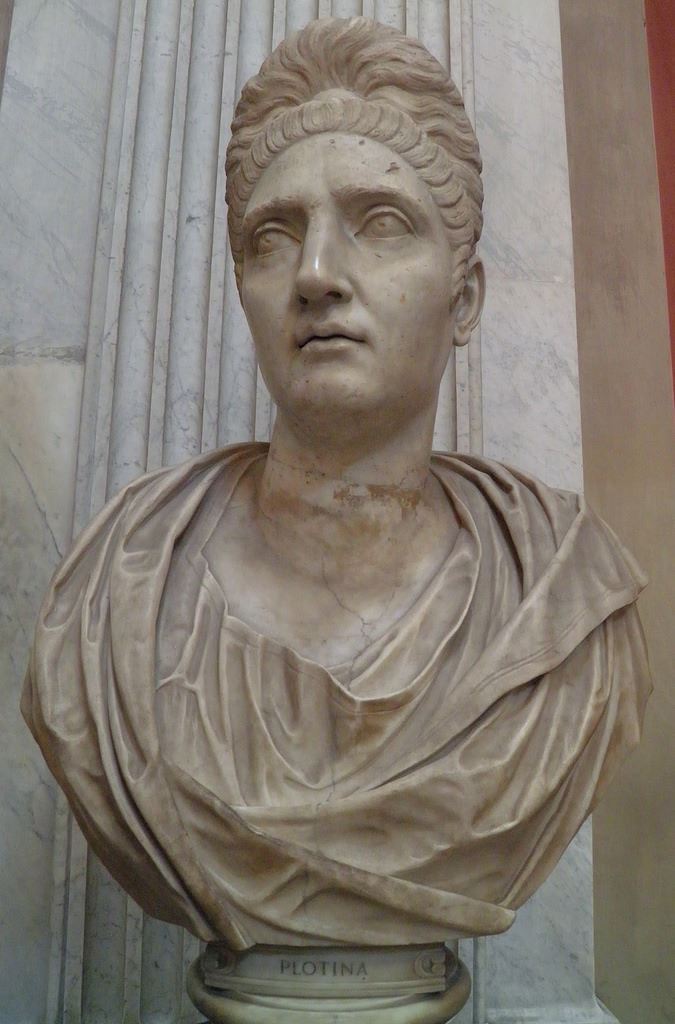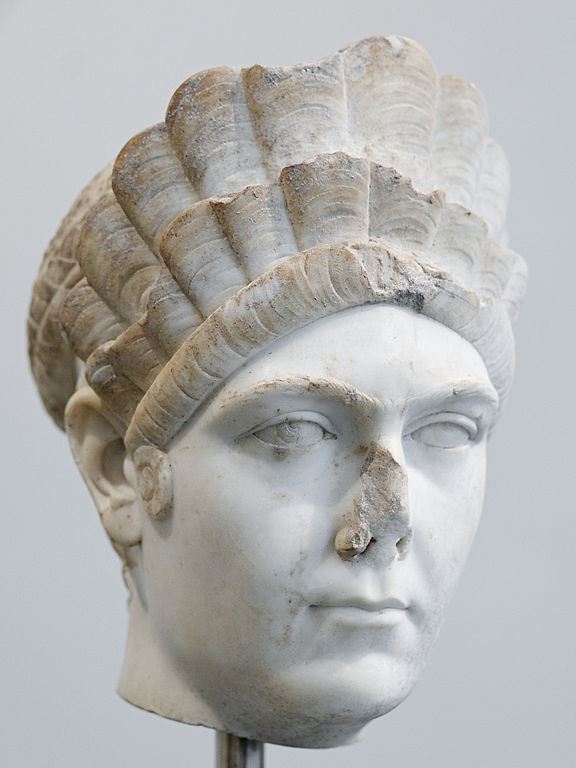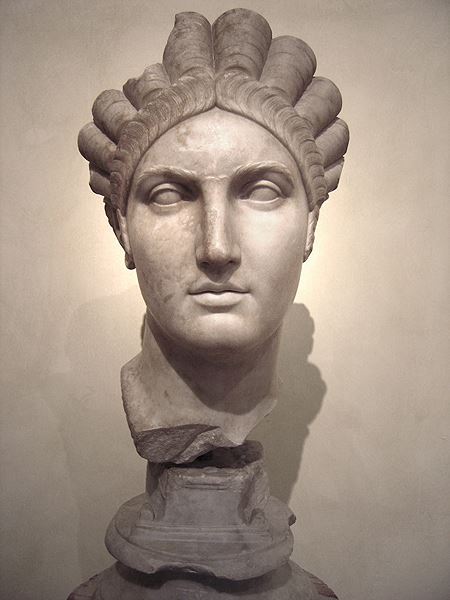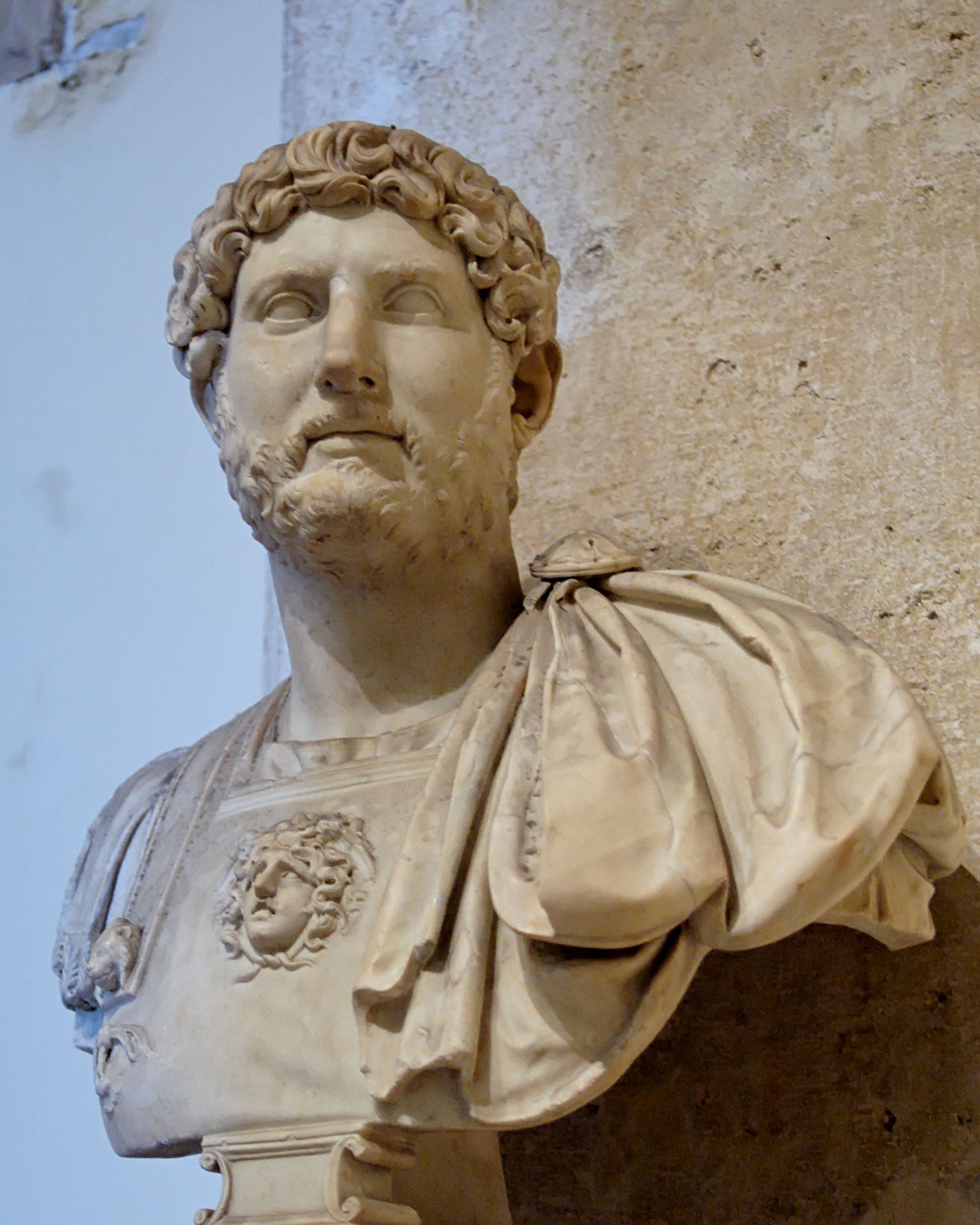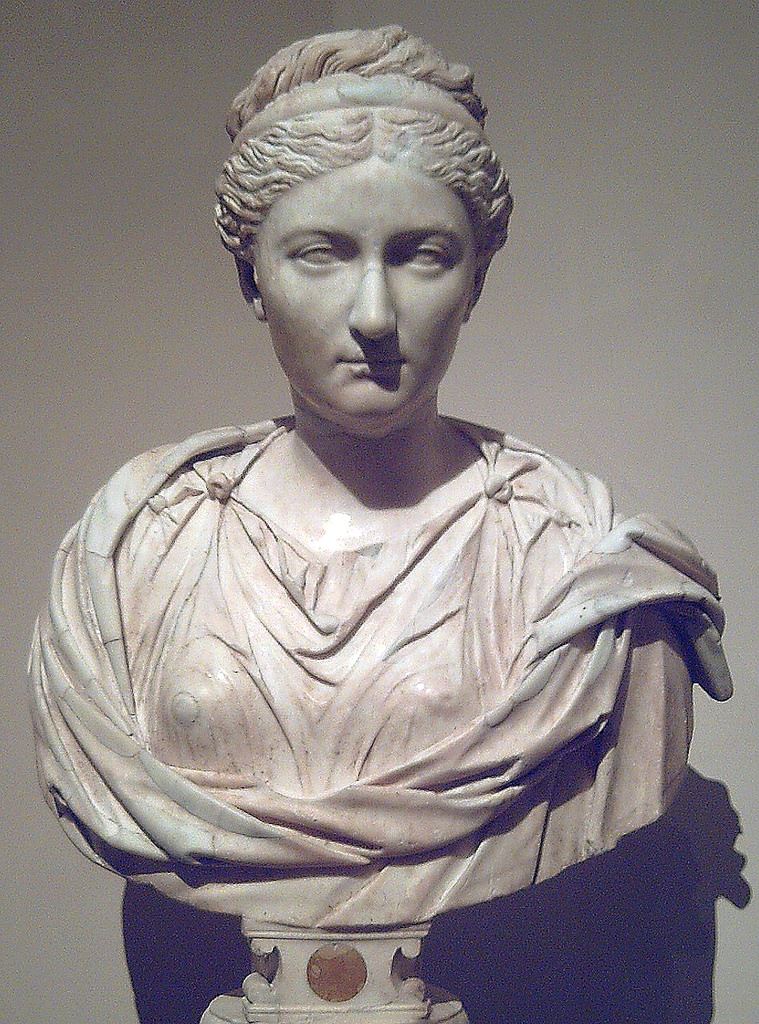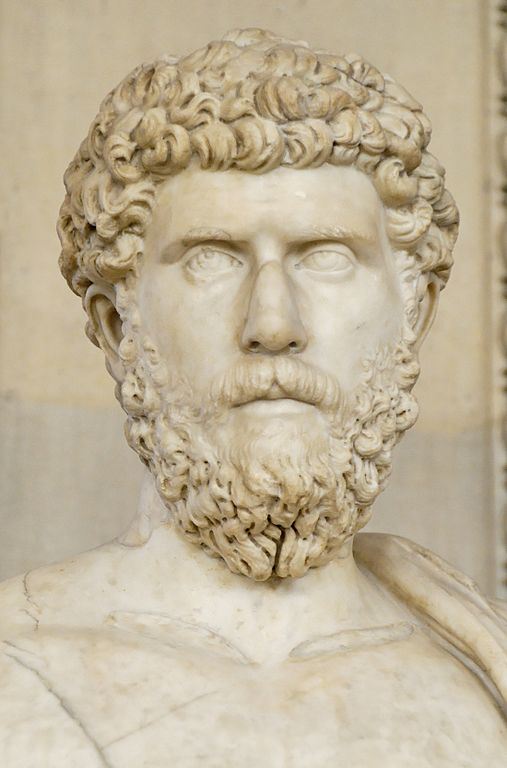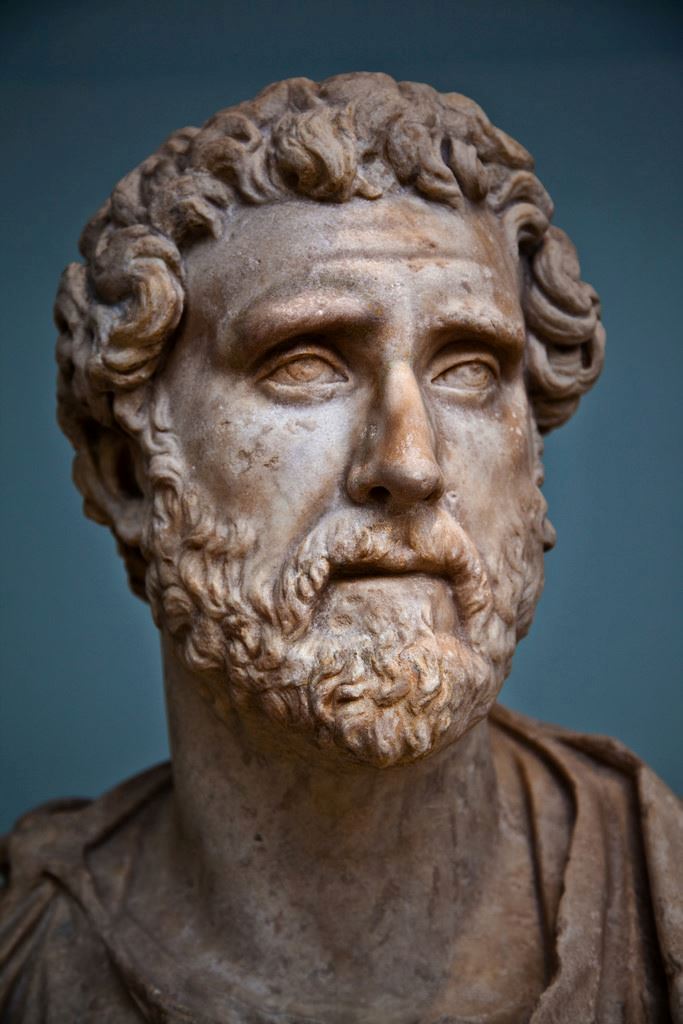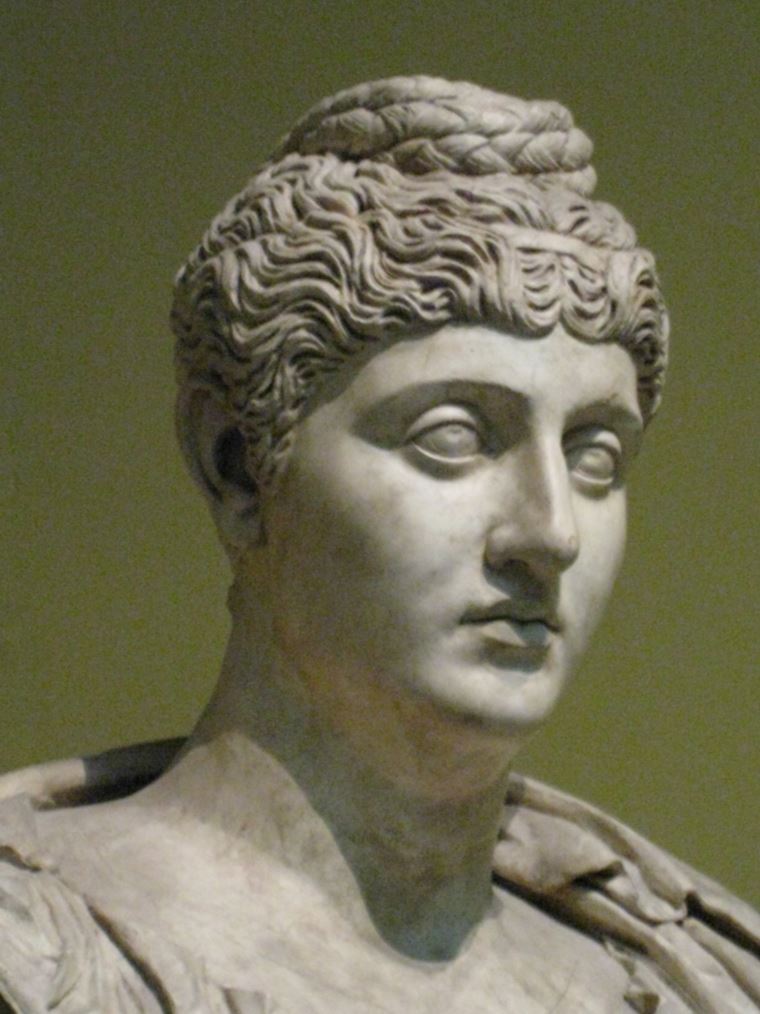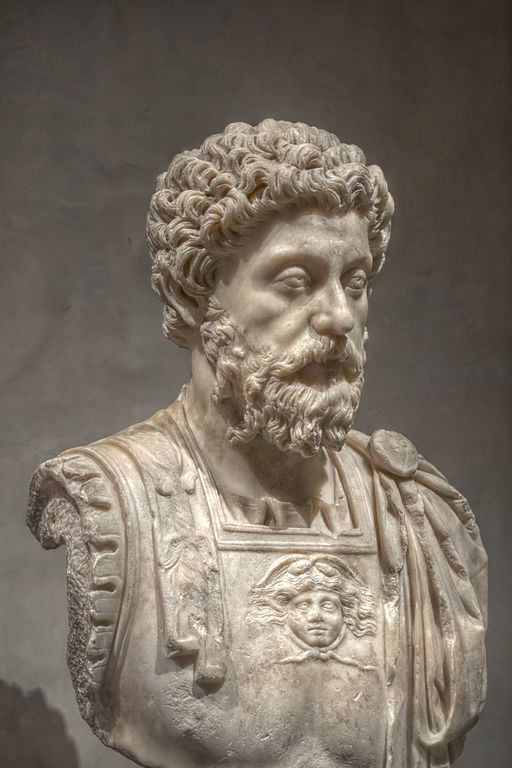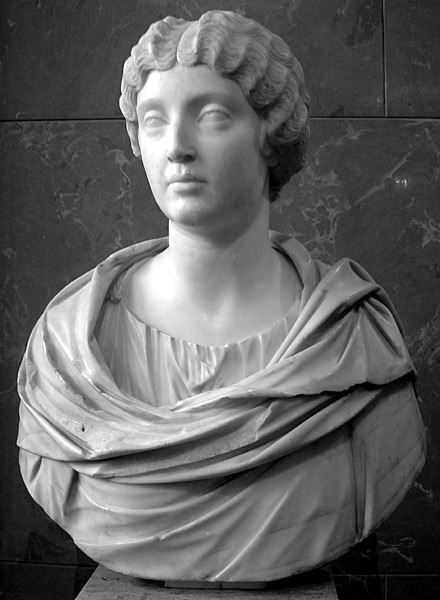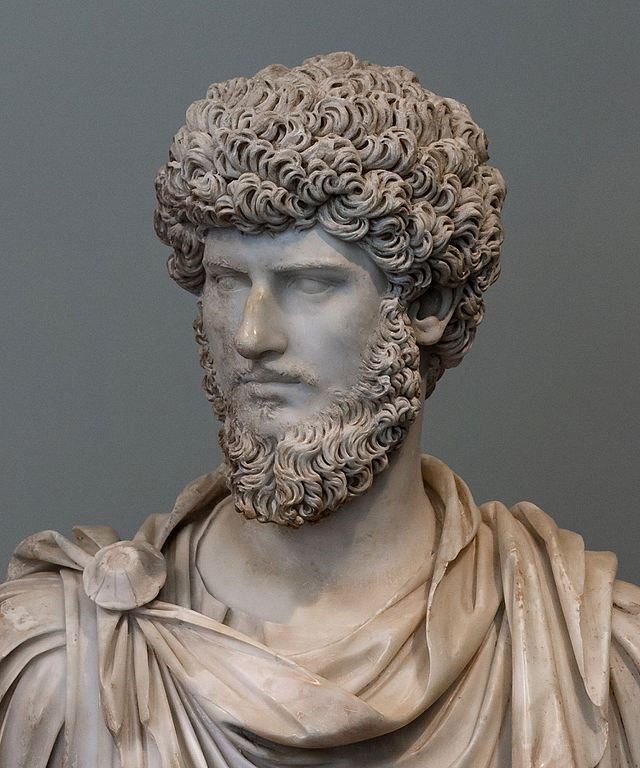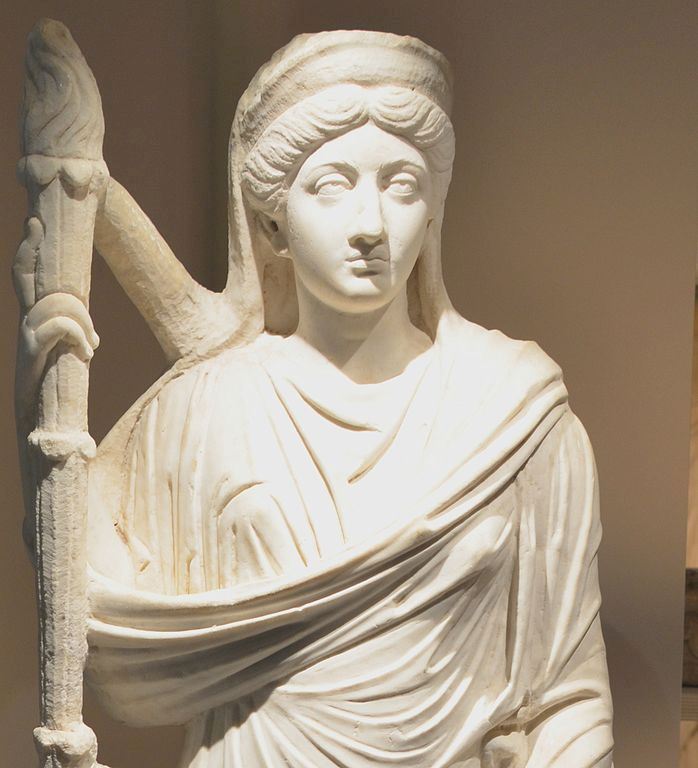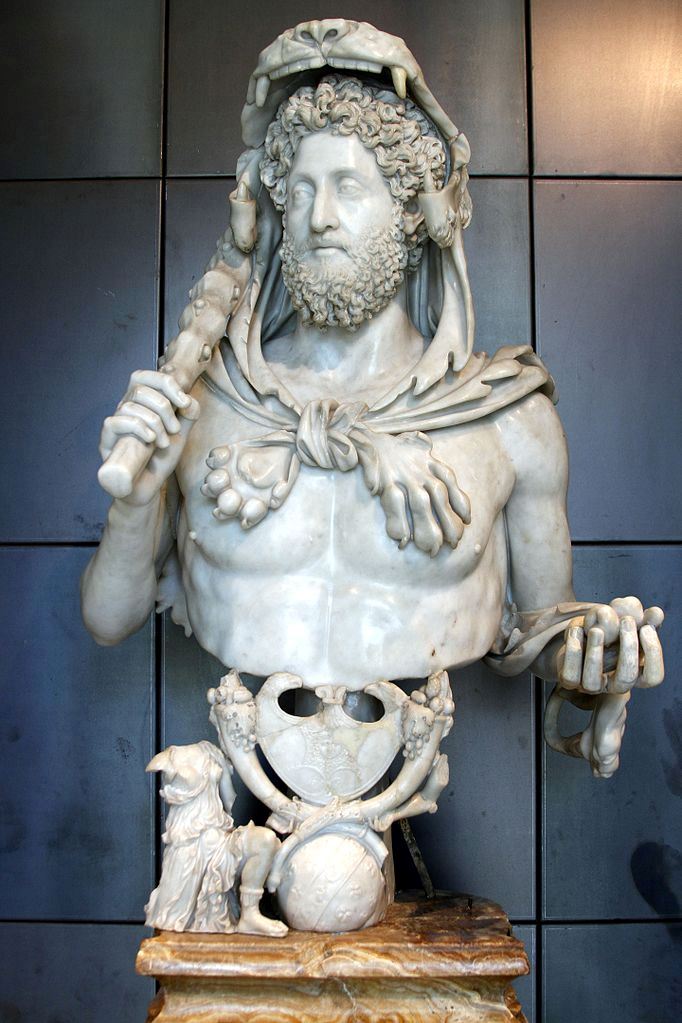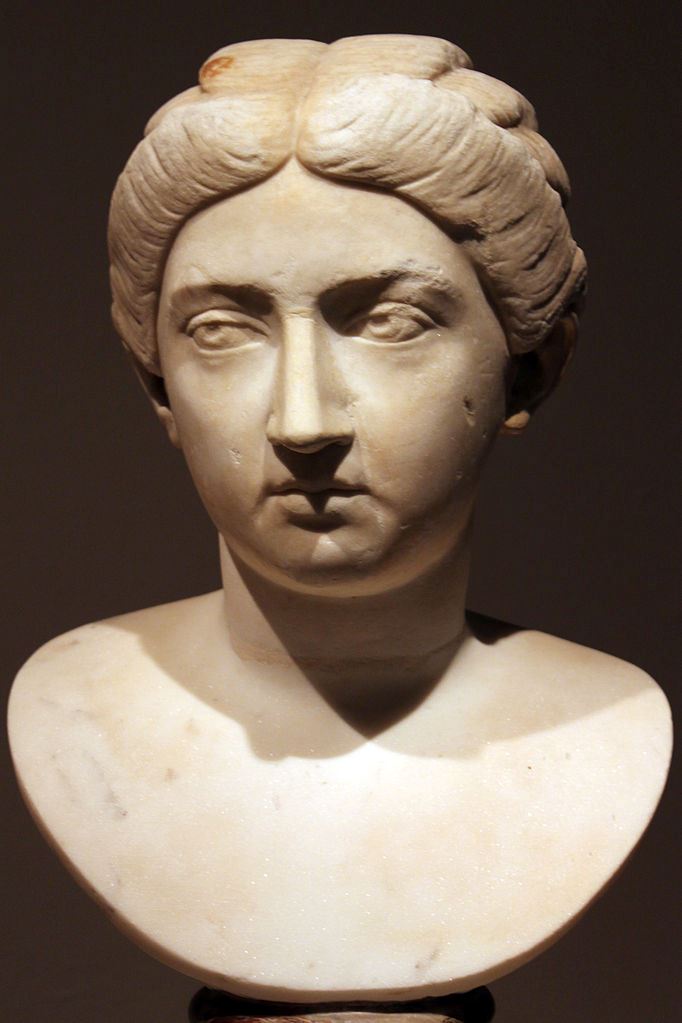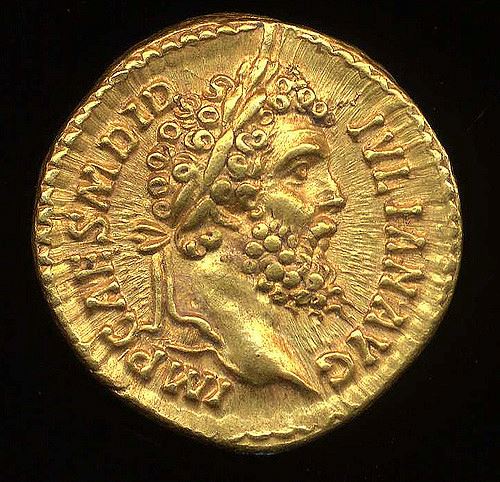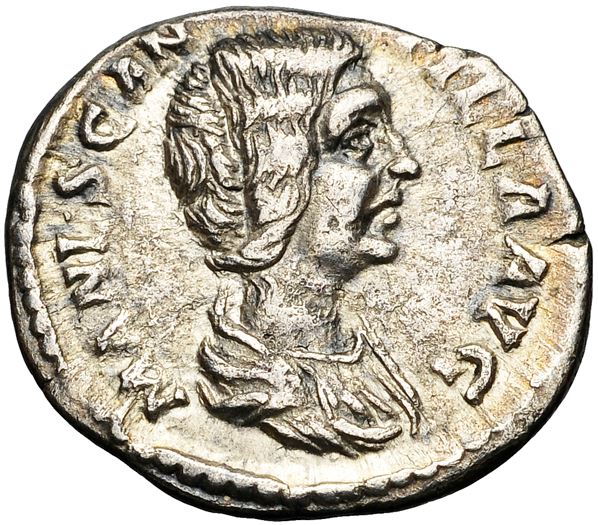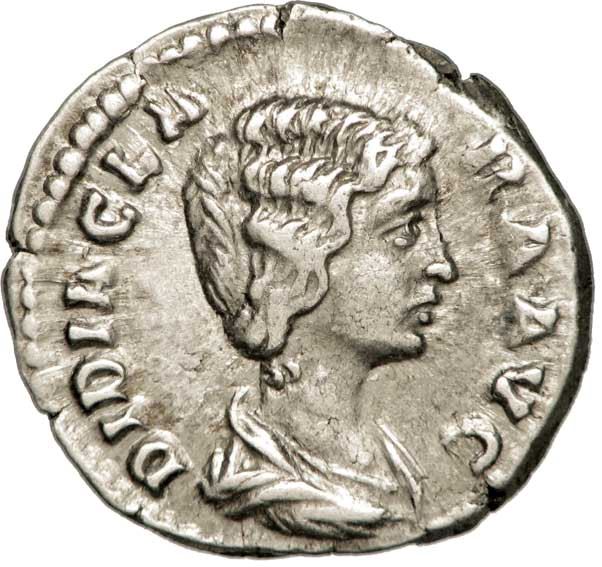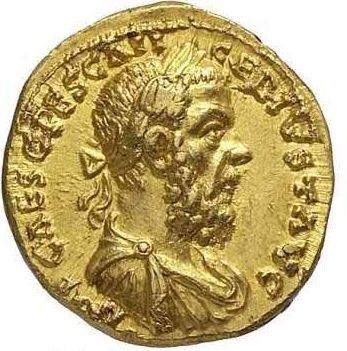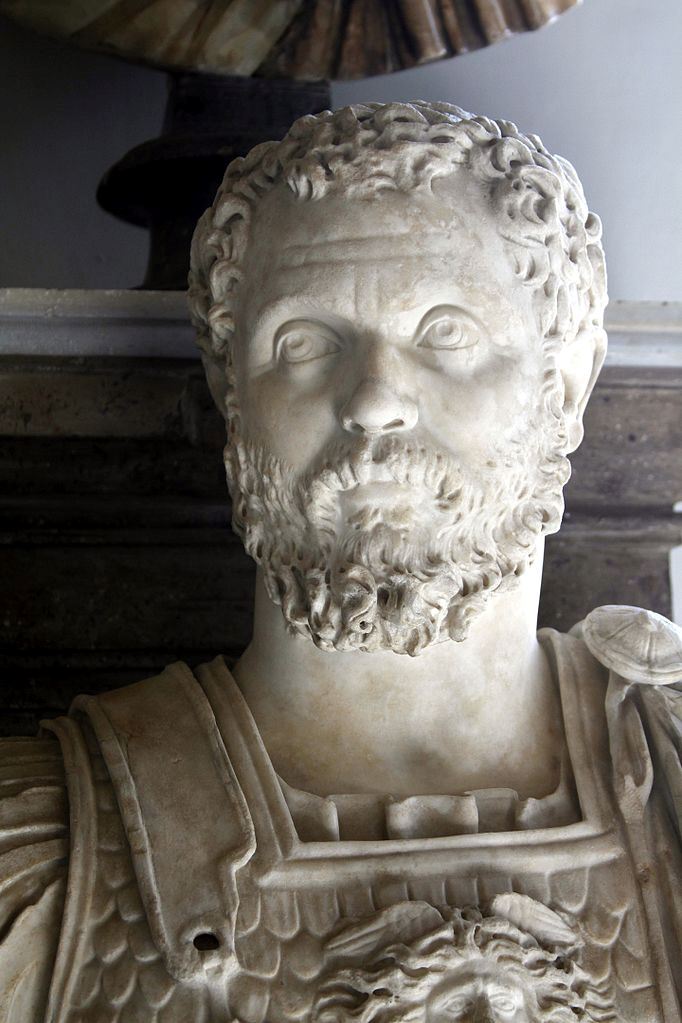Following the murder of Domitian, the elder statesman Nerva found himself crowned emperor. His brief reign - 96-98 AD - was marred by financial difficulties and the question of succession. Following a palace revolt in 97 AD, he was forced to adopt an heir - and chose the young and popular general Trajan.
This ensured a peaceful transition of power, and founded a dynasty of adopted emperors which would rule until Commodus' murder in 192 AD. This was a period of great stability and splendour, during which the Empire reached its peak land mass area and population - almost 70 million people. Includes the year of the five emperors (193 AD).
This ensured a peaceful transition of power, and founded a dynasty of adopted emperors which would rule until Commodus' murder in 192 AD. This was a period of great stability and splendour, during which the Empire reached its peak land mass area and population - almost 70 million people. Includes the year of the five emperors (193 AD).
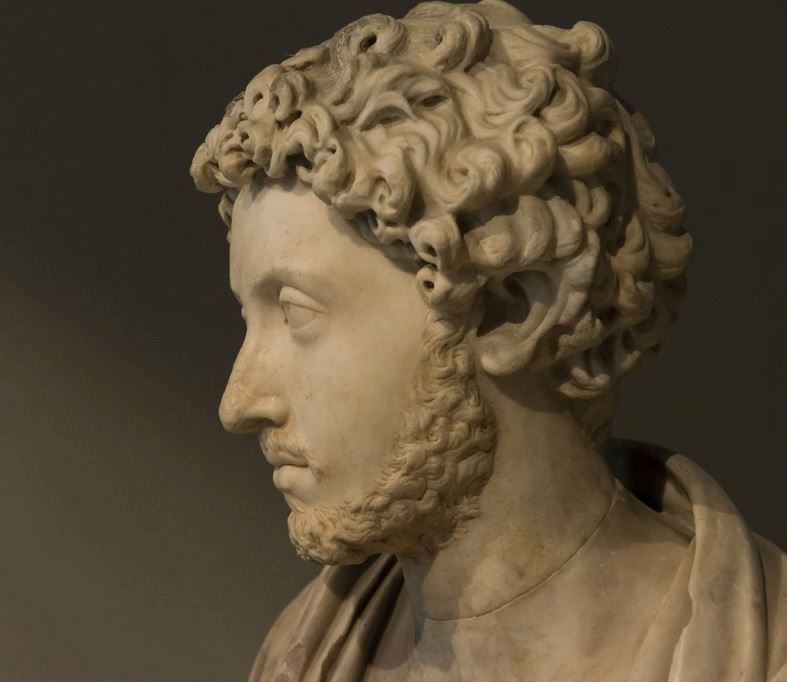
Marcus Cocceius Nerva Caesar Augustus was Roman Emperor from 96 to 98.
On 18 September 96, Domitian was assassinated in a palace conspiracy involving members of the Praetorian Guard and several of his freedmen. On the same day, Nerva was declared emperor by the Roman Senate. He became Emperor at the age of sixty-five, after a lifetime of imperial service under Nero and the rulers of th...
On 18 September 96, Domitian was assassinated in a palace conspiracy involving members of the Praetorian Guard and several of his freedmen. On the same day, Nerva was declared emperor by the Roman Senate. He became Emperor at the age of sixty-five, after a lifetime of imperial service under Nero and the rulers of th...
Marcus Ulpius Trajanus was Roman emperor from 98 to 117 AD.
Trajan is remembered as a successful soldier-emperor who presided over the greatest military expansion in Roman history, leading the empire to attain its maximum territorial extent by the time of his death. He is also known for his philanthropic rule, overseeing extensive public building programs and implementing social welfare...
Trajan is remembered as a successful soldier-emperor who presided over the greatest military expansion in Roman history, leading the empire to attain its maximum territorial extent by the time of his death. He is also known for his philanthropic rule, overseeing extensive public building programs and implementing social welfare...
Pompeia Plotina Claudia Phoebe Piso was a Roman Empress and the wife of Roman Emperor Trajan.
In 100, Trajan awarded her with title of Augusta, but she did not accept the title until 105. She did not appear on coinage until 112. Plotina was the matchmaker between Hadrian and his future wife Vibia Sabina.
Plotina was renowned for her interest in philosophy, and her virtue, dig...
In 100, Trajan awarded her with title of Augusta, but she did not accept the title until 105. She did not appear on coinage until 112. Plotina was the matchmaker between Hadrian and his future wife Vibia Sabina.
Plotina was renowned for her interest in philosophy, and her virtue, dig...
Ulpia Marciana was the beloved elder sister of Roman Emperor Trajan.
After 105, her brother awarded her with the title of Augusta. She was the first sister of a Roman Emperor to receive this title. Marciana did not accept this at first, but her sister-in-law, the Empress Pompeia Plotina, insisted that she take the title.
Marciana would often travel with her brother and assis...
After 105, her brother awarded her with the title of Augusta. She was the first sister of a Roman Emperor to receive this title. Marciana did not accept this at first, but her sister-in-law, the Empress Pompeia Plotina, insisted that she take the title.
Marciana would often travel with her brother and assis...
Salonia Matidia was the daughter and only child of Ulpia Marciana and wealthy praetor Gaius Salonius Matidius Patruinus.
Her maternal uncle was the Roman emperor Trajan who had no children and treated her like his daughter. She often traveled with her uncle and assisted him with decision-making. On August 29, 112, she received the title of Augusta upon the death and divinization of Marc...
Her maternal uncle was the Roman emperor Trajan who had no children and treated her like his daughter. She often traveled with her uncle and assisted him with decision-making. On August 29, 112, she received the title of Augusta upon the death and divinization of Marc...
Publius Aelius Hadrianus Augustus was Roman emperor from 117 to 138. His predecessor, Trajan, was a maternal cousin of Hadrian's father.
Trajan did not designate an heir officially, but according to his wife Pompeia Plotina, he named Hadrian emperor immediately before his death.
Hadrian is regarded as the third of the Five Good Emperors, and is known for constructing Hadrian'...
Trajan did not designate an heir officially, but according to his wife Pompeia Plotina, he named Hadrian emperor immediately before his death.
Hadrian is regarded as the third of the Five Good Emperors, and is known for constructing Hadrian'...
Vibia Sabina was a Roman Empress, wife and second cousin, once removed, to Roman Emperor Hadrian. In 128, she was awarded the title of Augusta.
She married Hadrian in 100. She is rumored to have had an affair with Suetonius, a historian who was also Hadrian's secretary, in the year 119, which resulted in his dismissal as the Emperor's secretary.
Meanwhile, her husband was tho...
She married Hadrian in 100. She is rumored to have had an affair with Suetonius, a historian who was also Hadrian's secretary, in the year 119, which resulted in his dismissal as the Emperor's secretary.
Meanwhile, her husband was tho...
Lucius Aelius Caesar was briefly Caesar and heir to the emperor Hadrian, and the father of Emperor Lucius Verus.
Although Lucius had no military experience, he had served as a senator, and had powerful political connections; however, he was in poor health. In 136 he was adopted by Hadrian and named heir to the throne - much to the surprise of everyone.
To strengthen his posi...
Although Lucius had no military experience, he had served as a senator, and had powerful political connections; however, he was in poor health. In 136 he was adopted by Hadrian and named heir to the throne - much to the surprise of everyone.
To strengthen his posi...
Titus Aelius Hadrianus Antoninus Augustus Pius was Roman Emperor from 138 to 161. He was one of the Five Good Emperors in the Nerva–Antonine dynasty and the Aurelii.
He acquired the name Pius after his accession to the throne, either because he compelled the Senate to deify his adoptive father Hadrian, or because he had saved senators sentenced to death by Hadrian in his later years. <...
He acquired the name Pius after his accession to the throne, either because he compelled the Senate to deify his adoptive father Hadrian, or because he had saved senators sentenced to death by Hadrian in his later years. <...
Annia Galeria Faustina was a Roman empress and wife of the Roman emperor Antoninus Pius.
As a private citizen, she married Antoninus Pius between 110 and 115, and Faustina and Antoninus had a very happy marriage. Faustina bore Antoninus four children, two sons and two daughters. After Antoninus Pius' accession to the principate, the couple never left Italy.
Faustina's persona...
As a private citizen, she married Antoninus Pius between 110 and 115, and Faustina and Antoninus had a very happy marriage. Faustina bore Antoninus four children, two sons and two daughters. After Antoninus Pius' accession to the principate, the couple never left Italy.
Faustina's persona...
Marcus Aurelius Antoninus Augustus was Emperor of Rome from 161 to 180. He ruled with Lucius Verus as co-emperor from 161 until Verus' death in 169.
Marcus Aurelius was the last of the so-called Five Good Emperors. He was a practitioner of Stoicism, and his untitled writing, commonly known as Meditations, is a significant source of the modern understanding of ancient Stoic philosophy. ...
Marcus Aurelius was the last of the so-called Five Good Emperors. He was a practitioner of Stoicism, and his untitled writing, commonly known as Meditations, is a significant source of the modern understanding of ancient Stoic philosophy. ...
Annia Galeria Faustina Minor was a daughter of Roman Emperor Antoninus Pius and Roman Empress Faustina the Elder. She was a Roman Empress and wife to her maternal cousin Roman Emperor Marcus Aurelius.
Not much has survived about her life, but the Augustan History mentions adultery with sailors, gladiators, and men of rank; however, Faustina and Aurelius seem to have been very close and...
Not much has survived about her life, but the Augustan History mentions adultery with sailors, gladiators, and men of rank; however, Faustina and Aurelius seem to have been very close and...
Lucius Aurelius Verus Augustus was the co-emperor of Rome with his adoptive brother Marcus Aurelius from 161 until his own death in 169.
Lucius Verus was the first-born son to Avidia Plautia and Lucius Aelius Caesar, the first adopted son and heir of Roman Emperor Hadrian.
When his father died in early 138, Hadrian chose Antoninus Pius as his successor, on the condition that ...
Lucius Verus was the first-born son to Avidia Plautia and Lucius Aelius Caesar, the first adopted son and heir of Roman Emperor Hadrian.
When his father died in early 138, Hadrian chose Antoninus Pius as his successor, on the condition that ...
Annia Aurelia Galeria Lucilla was the daughter of Roman Emperor Marcus Aurelius and Roman Empress Faustina the Younger and an elder sister to future Roman Emperor Commodus.
In 161 Lucilla's father arranged a marriage for her with his co-ruler Lucius Verus. Verus, 18 years her senior, became her husband three years later in Ephesus in 164, and she received the title of Augusta and becam...
In 161 Lucilla's father arranged a marriage for her with his co-ruler Lucius Verus. Verus, 18 years her senior, became her husband three years later in Ephesus in 164, and she received the title of Augusta and becam...
Lucius Aelius Aurelius Commodus ruled as co-emperor with his father Marcus Aurelius from 177 to 180, and as sole emperor from 180 to 192.
Although he considered his twelve-year-reign a new “golden age,” his lack of concern for political matters, life of leisure, and extreme paranoia brought about a reign of terror.
Commodus was extremely proud of his physical prowess. He tho...
Although he considered his twelve-year-reign a new “golden age,” his lack of concern for political matters, life of leisure, and extreme paranoia brought about a reign of terror.
Commodus was extremely proud of his physical prowess. He tho...
Bruttia Crispina was Roman Empress from 178 to 191 as the consort of Roman Emperor Commodus.
As Augusta, Crispina was extensively honoured with public images during the last two years of her father-in-law's reign and the initial years of her husband's reign.
She did not seem to have any significant political influence over her husband during his bizarre reign.
Afte...
As Augusta, Crispina was extensively honoured with public images during the last two years of her father-in-law's reign and the initial years of her husband's reign.
She did not seem to have any significant political influence over her husband during his bizarre reign.
Afte...
Publius Helvius Pertinax Augustus was Roman Emperor for the first three months of 193.
As the successor to the assassinated Commodus, he was the first to serve as emperor during the tumultuous Year of the Five Emperors.
He attempted to institute several reform measures, and one of those reforms - the restoration of discipline among the Praetorian Guards - led to conflict that...
As the successor to the assassinated Commodus, he was the first to serve as emperor during the tumultuous Year of the Five Emperors.
He attempted to institute several reform measures, and one of those reforms - the restoration of discipline among the Praetorian Guards - led to conflict that...
Marcus Didius Severus Julianus Augustus was Roman emperor for nine weeks during the year 193.
Julianus ascended the throne after buying it from the Praetorian Guard, who had assassinated his predecessor Pertinax. The population would not stand for this travesty, and this discontent lead to civil war between 193 and 197.
Within weeks of buying the throne, the general Septimius...
Julianus ascended the throne after buying it from the Praetorian Guard, who had assassinated his predecessor Pertinax. The population would not stand for this travesty, and this discontent lead to civil war between 193 and 197.
Within weeks of buying the throne, the general Septimius...
Manlia Scantilla was briefly Roman Empress as wife to the Roman Emperor Didius Julianus.
Manlia Scantilla married the general Didius Julianus before his succession. Around 153, she bore Julianus a daughter and only child Didia Clara, who was known for her beauty.
Her husband became emperor on 28 March 193. On that day, Scantilla and her daughter were awarded the title of Augu...
Manlia Scantilla married the general Didius Julianus before his succession. Around 153, she bore Julianus a daughter and only child Didia Clara, who was known for her beauty.
Her husband became emperor on 28 March 193. On that day, Scantilla and her daughter were awarded the title of Augu...
Didia Clara was the daughter and only child to the Roman Emperor Didius Julianus and Empress Manlia Scantilla.
Didia Clara was reputedly one of the most beautiful women in Rome, but virtually nothing is known about her life or her personality. In her younger years, she was betrothed to a paternal cousin; but in 193 she married Sextus Cornelius Repentinus, who served as prefect of Rome d...
Didia Clara was reputedly one of the most beautiful women in Rome, but virtually nothing is known about her life or her personality. In her younger years, she was betrothed to a paternal cousin; but in 193 she married Sextus Cornelius Repentinus, who served as prefect of Rome d...
Gaius Pescennius Niger Augustus was Roman Emperor from 193 to 194 during the Year of the Five Emperors.
Commodus made Niger imperial legate of Syria in 191, and he was still serving in Syria when news of Pertinax' murder broke. Niger was proclaimed Emperor by the eastern legions by the end of April 193. He took the additional cognomen Justus, or "the Just".
In the ensuing ci...
Commodus made Niger imperial legate of Syria in 191, and he was still serving in Syria when news of Pertinax' murder broke. Niger was proclaimed Emperor by the eastern legions by the end of April 193. He took the additional cognomen Justus, or "the Just".
In the ensuing ci...
Decimus Clodius Septimius Albinus Augustus was a Roman usurper.
After Pertinax was assassinated in 193, the imperial throne was sold to Didius Julianus. Immediately afterwards, Pescennius Niger was proclaimed Emperor by the legions in Syria; Septimius Severus by the troops in Illyricum and Pannonia, and Albinus by the armies in Britain and Gaul.
In the civil war that followed...
After Pertinax was assassinated in 193, the imperial throne was sold to Didius Julianus. Immediately afterwards, Pescennius Niger was proclaimed Emperor by the legions in Syria; Septimius Severus by the troops in Illyricum and Pannonia, and Albinus by the armies in Britain and Gaul.
In the civil war that followed...

